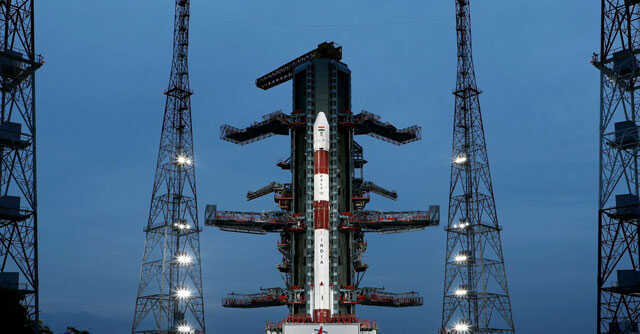
ISRO to launch maiden SSLV mission for small satellite launches on August 7


The Indian Space Research Organisation (ISRO) has announced that it will be launching its much awaited Small Satellite Launch Vehicle (SSLV) rocket at 9:18AM IST on August 7, from its Satish Dhawan Space Centre launchpad in Sriharikota, Andhra Pradesh. The mission is expected to be a milestone for India’s future commercial space operation endeavours, and could showcase the use case of small rockets in future space launches.
The maiden SSLV mission will carry aboard the indigenously developed Earth Observation Satellite (EOS)-02, which is a technology demonstration satellite (TD-Sat) for future small remote sensing and earth observation satellites that would be launched by India. The latter will join over 17 remote sensing satellites that India already has in various orbits.
The SSLV has been a long time coming, and marks India’s first small payload satellite launcher. The launcher will have a maximum payload capacity of 500kg, which is much smaller than what India’s present rockets operated by ISRO have. For reference, ISRO’s Polar Satellite Launch Vehicle (PSLV), which conducts the bulk of India’s satellite launches so far, can carry up to 1.75 tonnes of satellite into low-Earth and sun-synchronous orbits.

India’s heavy-duty rocket, the Geosynchronous Satellite Launch Vehicle (GSLV) can carry up to 4 tonnes of satellites in its present configuration, and reach geosynchronous orbits of up to 35,786km above Earth.
The SSLV will be dedicated to launching small satellites, which have so far depended on larger satellites to come in as primary payloads aboard the PSLV and GSLV rockets. This would lead to small satellites seeing indefinite delays, and their launch schedules would be entirely dependent on the larger satellites. However, a bulk of satellite launch requirements would come in the form of small satellites over the next five to 10 years.
Anil Prakash, director general of industry body, Satellite Industry Association of India (SIA) told Mint last month that a total of over 60,000 satellites are expected to be launched around the world in the next three to five years, and small capacity launch vehicles such as the ISRO SSLV, as well as rockets such as Agnibaan and Vikram, by private Indian space startups Agnikul Cosmos and Skyroot Aerospace, will play a key role in helping India capture a larger share of the global satellite launch market.

The ISRO SSLV is also expected to reduce the time period presently required between two launch missions. While a PSLV rocket takes over 70 days to be fully assembled, the smaller-size SSLV seemingly takes around 72 hours to be assembled — former ISRO chairman, K. Sivan, had detailed at a press conference in 2019. The rocket will also bring the manpower required to assemble it down from 60 (in case of the existing PSLVs) to just six, Sivan had added.
